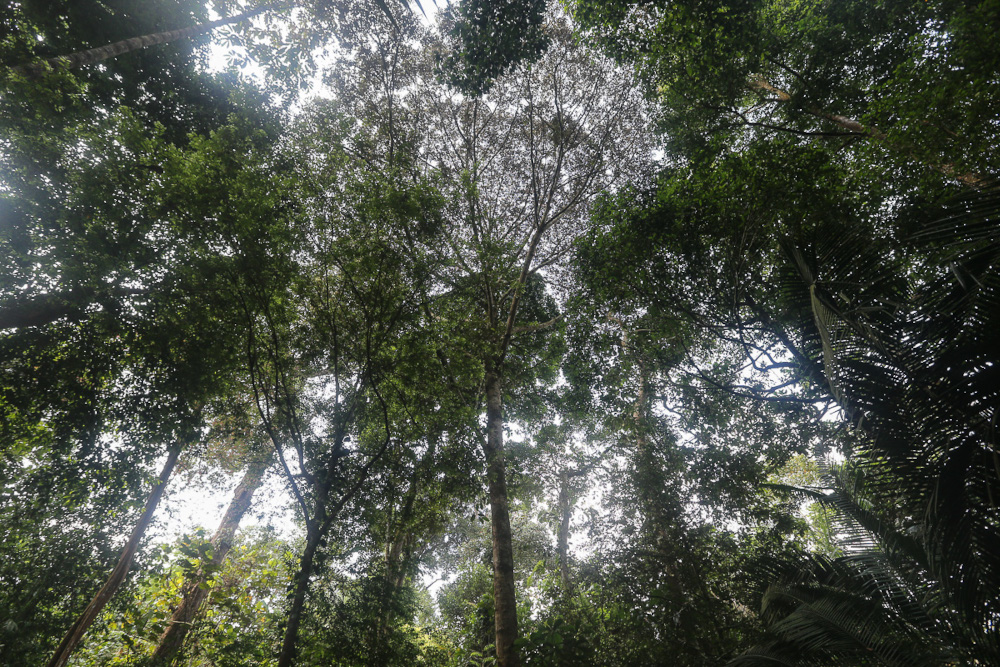KOTA KINABALU, March 8 — Eleven local and international organisations here have submitted a letter and report to the United Nations (UN) calling attention to the controversial carbon credit deal in Sabah which they claim are against international law, standards and institutions.
The organisations are requesting that the UN and its bodies verify whether they have been engaged in the development of the deal known as the Nature Conservation Agreement (NCA), do not play a role in its oversight and especially to guarantee that the NCA will deliver on rights or sustainable development commitments.
“We request clarity as the NCA uses language suggesting it is working under United Nations’ treaties and mechanisms, most of which claims are confusing or false, such as that it will comply with Kyoto Protocol (which was replaced by the Paris Agreement), and that the Sustainable Development Goals (SDGs) are an instrument connected with carbon trading,” it said in the statement here.
The group, consisting of indigenous rights groups PACOS Trust, Jaringan Orang Asal SeMalaysia (JOAS, Indigenous Peoples’ Network of Malaysia), Asia Indigenous Peoples Pact (AIPP), and International Work Group on Indigenous Affairs (IWGIA), as well as local and international civil society and conservation allies, Borneo Futures, Danau Girang Field Centre (DGFC), Land Empowerment Animals People (LEAP), South East Asia Rainforest Research Partnership (SEARRP), WWF Malaysia, and the Center for International Environmental Law (CIEL).
The group contended that the agreement does not mention the existence of Indigenous Peoples or Native Customary Rights, instead refers to the role of the United Nations 12 times and its sustainable development goals at least 18 times.
“We are concerned that this language may mislead Sabahans to believe they ‘can rely on United Nations’ involvement and standards to ensure its success’.
“Just as the protagonists made false claims that Temasek Holdings, Southern Capital and others were financing this, so they have been claiming the UN is legitimising it. We are therefore asking the UN the truth”, said LEAP chairman Cynthia Ong.
“The NCA will only have financial value if the international community has confidence in its technical quality, so we are asking the UN Special Rapporteurs to confirm that carbon credit certification requires standards of transparency, due diligence and governance of the kind referenced in Sabah government policy and not reflected in the NCA process thus far,” said Ong.
The group is also asking for the UN to issue a reminder that Malaysia’s international treaty obligations and domestic laws require recognition of native customary rights.
Meanwhile, PACOS’s Anne Lasimbang said that they were reaching out to the UN because they were unhappy that the proponents of the NCA claimed they had legal rights over carbon and life produced by the forests without due process or any consent from the indigenous communities.
“Just because you are a politician elected by indigenous voters in one constituency does not mean that communities across Sabah have given their Free Prior and Informed Consent to giving up their rights to use the forest to meet their wellbeing needs”, the statement quoted CSO Platform for Reform Beverly Joeman saying.
They said such a move by the proponents of the deal set a “dangerous precedent internationally” of privatising common heritage.
“The Forests under the NCA are the very same Totally Protected Areas that Sabahans have set aside and cherished for the conservation of our collective heritage over many years. Surely it is of international concern that these could be handed over without shame to an unaccountable foreign company, not least because they would include a Unesco World Heritage Site (Kinabalu), a World Heritage Site undergoing evaluation (DaMaI), as well as a Unesco Biosphere Reserve (Crocker Range), and a Ramsar site (Lower Kinabatangan Segama Wetlands)”, said Robecca Jumin of WWF-Malaysia.
“It ignores that Malaysia ratified the Convention on Biological Diversity (1992) and Nagoya Protocol that address issues of community rights and Access and Benefit Sharing.
“We realised that we had to appeal to the United Nations when it became clear that the zombie NCA was still refusing to die even after the state government and Sabah Attorney General’s statement that the NCA was so far ‘legally impotent’, riddled with ‘unfair and absurd contract terms’ and still has to face rigorous due diligence,” said Ong.
The NCA has been controversial since it first made headlines in the wildlife portal Mongabay, with the main contention being the lack of transparency in the lead-up to the signing, the appointment of a little-known Singaporean firm as its main project manager, the amount payable to the firm, and also the lack of information that was provided to communities who are directly or indirectly involved in conservation.
The deal is meant to begin with some 600,000 hectares as a start, with the potential to involve up to two million hectares for the next 100 years. The main proponent of the NCA, deputy chief minister Datuk Seri Jeffrey Kitingan, had insisted that the deal was legitimate and that he has the state’s best interest at heart.
In an effort to appease some quarters, state body Sabah Foundation was appointed a local partner in the deal, with a five per cent earning from the 30 per cent that is to be paid to the Singaporean firm Hoch Standard.



















